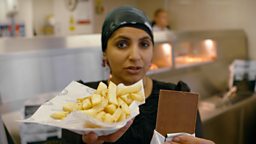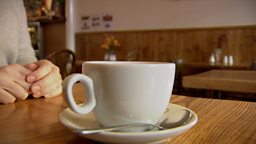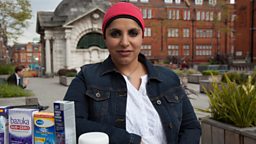Is eating in the evenings bad for me?
There are a lot of ‘rules’ out there for eating, saying that you shouldn’t eat carbs after a certain time in the evening – but is there any truth to them? Michael Mosley set out to experiment on himself and find out once and for all.
Experiment 1: does eating the same meal have a different effect on your body in the morning and the evening?
Michael had a classic fry-up at 10am and 10pm, with no food in between, and during the day he was careful not to do any exercise that might disrupt his blood sugar and fat levels.
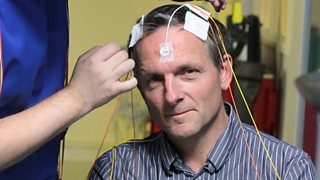
He had blood samples taken and analysed before, and at set times after, eating.
This allowed us to plot what effect the meal had on his blood sugar and blood fat (triglyceride) levels in both the morning and the evening.
The result was that when he ate the fry-up in the morning, his blood sugar peaked about an hour after eating, and then returned to baseline within 2 hours.
Whilst when he exactly the same in the evening, his blood sugar stayed high even 3 or 4 hours after the meal.
The blood fat story was similar: in the morning it peaked around 3 hours after eating, whilst in the evening it was still rising even after the last blood sample 4 hours after eating.


So, what was causing this difference? Michael conducted a more extreme experiment to find out…
Experiment 2: when should we avoid eating?
Dr Jon Johnston of Surrey University studies our body clocks, and he suggested that Michael measured how his body clock regulated his responses to food by going into an isolation chamber. This meant removing any external things that might influence his metabolism such as light, exercise and falling asleep! So, Michael spent 24 hours in the dark, being kept awake whilst lying on a bed unable to move.
In order to stop his body going into starvation, he was fed a tiny and identical sandwich every hour, and every hour his blood was taken for analysis. This allowed the researchers to measure the levels of the hormones that are associated with our sleep and wake cycle (melatonin and cortisol), as well as his blood sugar and fat levels.
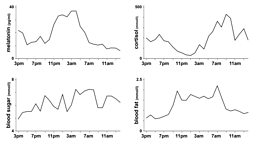
The results showed that at about 9pm the levels of the hormone melatonin, associated with sleep, started to rise – indicating that his body was preparing for sleep. In line with this rise, his blood fat levels also started to rise.
In the early hours of the morning, his cortisol (wake hormone) levels started to rise instead – peaking at 9am, and his melatonin dropped. Closely matching it, his blood fat levels also dropped off around 9am.
His blood sugar levels were not as clear cut, but they also dropped round 9am, and rose in the evening.
This is all because the body has a natural rhythm, expecting food during the daytime, and in the evening, preparing to fast overnight – and so bringing fats out of storage ready to fuel the body. If we eat whilst our blood sugar and fat levels are already high, then we are potentially doing our health no good at all.
So, the message is: eat your biggest meals in the morning, and have a lighter supper. Although we all have our own personal body clock, it seems from Michael’s results that he should ideally avoid eating after about 8pm. Essentially the earlier you can stop taking in calories, the better – as showed.










